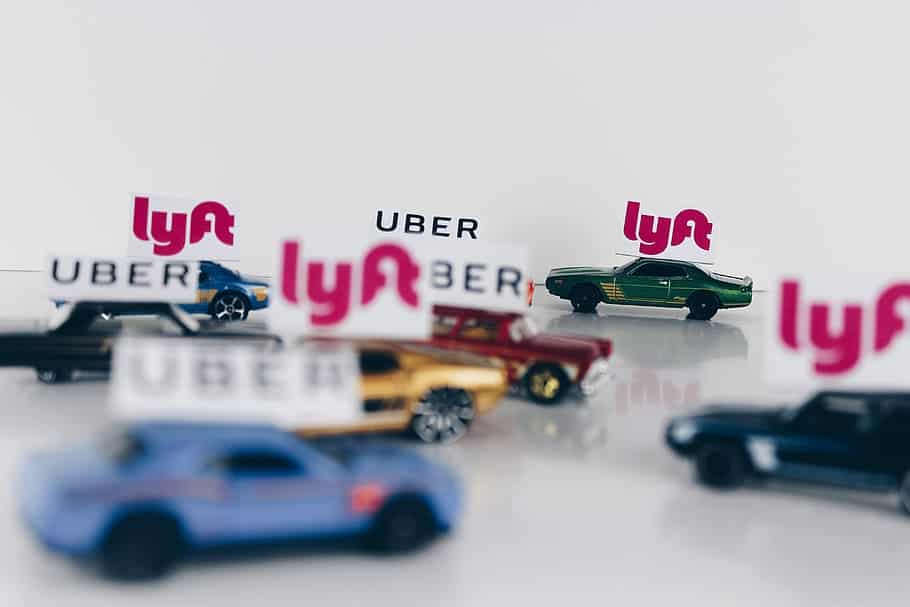
Zachary Boullt is a student at Harvard Law School.
In an attempt to circumvent drivers being classified as employees under Assembly Bill 5, rideshare companies have succeeded in gathering the signature necessary to add a ballot initiative to California’s November 3 ballot that, if passed, would cement drivers’ status as independent contractors while offering limited benefits. The ballot initiative campaign has been bankrolled by Uber, Lyft, DoorDash, Instacart, and Postmates, funding more than $110.6 million into their “Protect App-Based Drivers and Services” political committee. Labor groups such as the California Labor Federation and AFL-CIO have spent more than $690,000 opposing it. The ballot initiative, if passed, would require rideshare companies to pay drivers at least 120% of the hourly minimum wage plus 30 cents per mile, but they would not have to add drivers to payroll. While drivers would receive limited health subsidies, accident insurance, harassment protections, and daily hour limits, they would not qualify for paid leave nor unemployment benefits, and they would be explicitly classified as independent contractors. The no-unemployment-benefits provision is especially salient as drivers nationally are struggling to access inconsistent payouts of Pandemic Unemployment Assistance benefits, with some having to turn to small-business loans as their only assistance option. If the ballot initiative is passed, it would place a major roadblock in efforts to classify rideshare workers as employees, as it could only be overturned by a seven-eighths majority vote in the state legislature.
Federal government workers are facing chaos and contradictory messaging as reopen initiatives are pressuring their agencies to return to work. Many agency workers, some of whom have kept working during the pandemic, are reporting still no plans for broad testing or contract-tracing once reopen measures go into place. The State Department’s reopen plan has no mask requirement and few requirements for temperature checks or social distancing. Agencies such as the CIA and the Pentagon are facing heavy pressure to limit work-from-home arrangements due to the inability for home workers to view some classified documents. The IRS is offering incentive pay and sanitary materials to returning workers, but it has already had to rapidly close its Kansas City, Missouri office after an employee tested positive a few days after the office resumed operations. In contrast, the SEC has installed mandatory telework for most employees until at least July 15.
Waves of strikes by fruit packing house workers are occurring in Yakima Valley in Washington. Workers have striked at seven different fruit packing houses in the region since since May 7. Issues have concerned hazard pay, management responsiveness to COVID concerns, line supervisors undermining workers’ concerns, workplace safety measures, and channels to voice complaints. None of the packing house workers have unions. While the Yakima Valley region has had historic labor advocacy from the 1960s through the 1980s, strikes are a first at the fruit packing houses, which were often seen as better work environments compared to those of pickers. So far one group, Monston Fruit warehouse workers, has reached an agreement.
New Orleans sanitation workers are entering their fourth week of striking. After initially being fired upon announcing a strike on May 5 and replaced with people leaving prison under work release programs, the workers have been allowed to return to their jobs out of labor dispute concerns. However, the workers have so far refused, citing wages as low as $10.25 an hour, poor sanitary protections, and wage theft. While the workers are operating under the City Waste Union banner, they do not have an NLRB-recognized union. The workers have staged “I Am a Man” demonstrations and protests to channel their messaging.
As President Trump has been instituting more restrictive immigration policies, the meatpacking industry has begun voicing concerns about labor shortages. Immigrant workers are facing dual concerns of restrictions on seasonal worker provisions and retaliation upon voicing concerns about pandemic sanitation. Immigrants comprise 40% of the industry’s workers, making up as high as 66% in states such as Nebraska. Many meatpacking companies have been criticized for their low wages, poor worker protections and benefits, and exploitation of immigrant desperation, and are now struggling to recruit more workers under their same labor conditions as immigration restrictions tighten.






Daily News & Commentary
Start your day with our roundup of the latest labor developments. See all
December 11
In today’s News and Commentary, Biden’s NLRB pick heads to Senate vote, DOL settles a farmworker lawsuit, and a federal judge blocks Albertsons-Kroger merger. Democrats have moved to expedite re-confirmation proceedings for NLRB Chair Lauren McFerran, which would grant her another five years on the Board. If the Democrats succeed in finding 50 Senate votes […]
December 10
In today’s News and Commentary, advocacy groups lay out demands for Lori Chavez-DeRemer at DOL, a German union leader calls for ending the country’s debt brake, Teamsters give Amazon a deadline to agree to bargaining dates, and graduates of coding bootcamps face a labor market reshaped by the rise of AI. Worker advocacy groups have […]
December 9
Teamsters file charges against Costco; a sanitation contractor is fined child labor law violations, and workers give VW an ultimatum ahead of the latest negotiation attempts
December 8
Massachusetts rideshare drivers prepare to unionize; Starbucks and Nestlé supply chains use child labor, report says.
December 6
In today’s news and commentary, DOL attempts to abolish subminimum wage for workers with disabilities, AFGE reaches remote work agreement with SSA, and George Washington University resident doctors vote to strike. This week, the Department of Labor proposed a rule to abolish the Fair Labor Standards Act’s Section 14(c) program, which allows employers to pay […]
December 4
South Korea’s largest labor union began a general strike calling for the President’s removal, a Wisconsin judge reinstated bargaining rights for the state’s public sector workers, and the NLRB issued another ruling against Starbucks for anti-union practices.